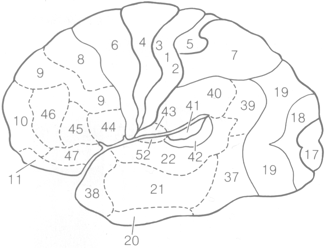News
-
Wachkraniotomie
29.01.2024
Der Patient bleibt wach, damit die Operation gelingt - «gesundheit heute» war bei einem chirurgischen Eingriff am Universitätsspital Basel dabei. Der Patient leidet an einem Hirntumor. Das Besondere daran: Er war während des Eingriffs wach. Um zu verhindern, dass das Sprach- oder Bewegungszentrum verletzt wird, prüfen die Neurochirurginnen und Neurochirurgen des Universitätsspitals Basel (USB), während der OP ständig, wie der Patient reagiert. Dazu muss er wach bleiben. Zum Artikel
Agenda
-
76154-01 - Kolloquium: Neuropsychiatrie und Hirnerkrankungen (2 KP)
76154-01 - Kolloquium: Neuropsychiatrie und Hirnerkrankungen (2 KP) On Thursdays, 10.15-11.45
-
76146-01 - Kolloquium: Neuropsychiatrie, Verhaltensneurologie und Neuropsychologie (2 KP)
76146-01 - Kolloquium: Neuropsychiatrie, Verhaltensneurologie und Neuropsychologie (2 KP) On Thursdays, 10.15-11.45
-
76171-01 – Masterprojekt: Neuropsychiatrie, Verhaltensneurologie und Neuropsychologie (3 KP)
76171-01 – Masterprojekt: Neuropsychiatrie, Verhaltensneurologie und Neuropsychologie (3 KP) appointments are individually scheduled with the supervisor
-
76181-01 – Masterprojekt: Neuropsychiatrische Störungen bei Hirnernkrankungen (5KP)
76181-01 – Masterprojekt: Neuropsychiatrische Störungen bei Hirnernkrankungen (5KP) appointments are individually scheduled with the supervisor
-
23264-01 - Propädeutische Vorlesung: Biologische Grundlagen I (8 KP)
23264-01 - Propädeutische Vorlesung: Biologische Grundlagen I (8 KP) On Tuesdays, 12.30-14.00
-
26086-01 – Vorlesung: Einführung in die Neuropsychologie (3 KP)
26086-01 – Vorlesung: Einführung in die Neuropsychologie (3 KP) On Wednesdays, 14.15-15.45
-
25450 – Seminar: Diagnostische Übungen (4 KP)
25450 – Seminar: Diagnostische Übungen (4 KP) On Tuesdays, 14.15-15.45
-
55471-01 – Vorlesung: Neurologie für Psycholog/innen (3 KP) (abgesagt)
55471-01 – Vorlesung: Neurologie für Psycholog/innen (3 KP) (abgesagt)
-
56561-01 – Vorlesung: Gehirn und Verhalten (3 KP)
56561-01 – Vorlesung: Gehirn und Verhalten (3 KP) On Mondays, 14.15-15.45
